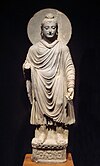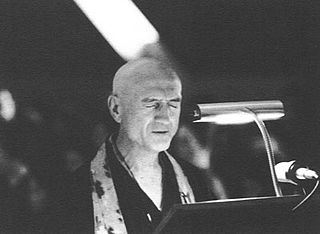
Philip Kapleau was an American teacher of Zen Buddhism in the Sanbo Kyodan tradition, a blending of Japanese Sōtō and Rinzai schools. He also advocated strongly for Buddhist vegetarianism.
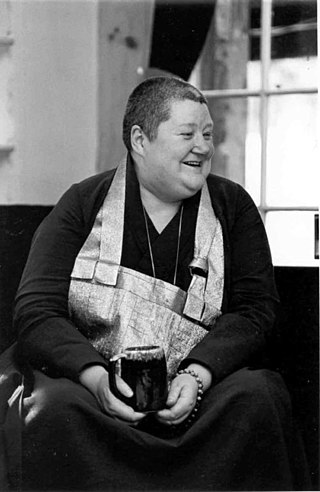
Hōun Jiyu-Kennett, born Peggy Teresa Nancy Kennett, was a British roshi most famous for having been the first female to be sanctioned by the Sōtō School of Japan to teach in the West.
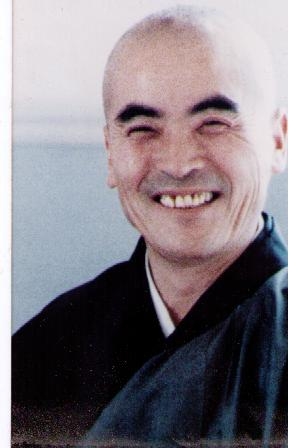
JikaiDainin Katagiri, was a Sōtō Zen priest and teacher, and the founding abbot of Minnesota Zen Meditation Center in Minneapolis, Minnesota, where he served from 1972 until his death from cancer in 1990. He is also the founder of Hokyoji Zen Practice Community in Eitzen, Minnesota. Before becoming first abbot of the Minnesota Zen Meditation Center, Katagiri had worked at the Zenshuji Soto Zen Mission in Los Angeles and had also been of great service to Shunryu Suzuki at the San Francisco Zen Center, particularly from 1969 until Suzuki's death in 1971. Katagiri was important in helping bring Zen Buddhism from Japan to the United States during its formative years. He is also the credited author of several books compiled from his talks.
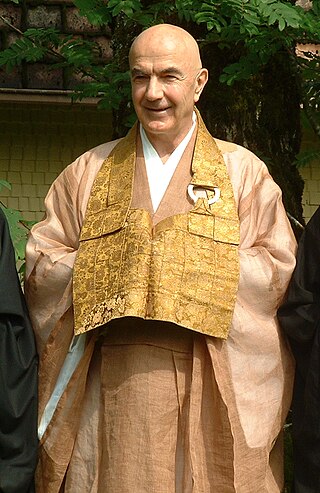
Richard Dudley Baker is an American Soto Zen master, the founder and guiding teacher of Dharma Sangha—which consists of Crestone Mountain Zen Center located in Crestone, Colorado and the Buddhistisches Studienzentrum (Johanneshof) in Germany's Black Forest. As the American Dharma heir to Shunryu Suzuki, Baker assumed abbotship of the San Francisco Zen Center (SFZC) shortly before Suzuki's death in 1971. He remained abbot there until 1984, the year he resigned his position after it was disclosed in the previous year that he and the wife of one of SFZC's benefactors had been having an ongoing affair. Despite the controversy connected with his resignation, Baker was instrumental in helping the San Francisco Zen Center to become one of the most successful Zen institutions in the United States.

Seungsahn Haengwon, born Duk-In Lee, was a Korean Seon master of the Jogye Order and founder of the international Kwan Um School of Zen. He was the seventy-eighth Patriarch in his lineage. As one of the early Korean Zen masters to settle in the United States, he opened many temples and practice groups across the globe. He was known for his charismatic style and direct presentation of Zen, which was well tailored for the Western audience.

The term American Buddhism can be used to describe all Buddhist groups within the United States, including Asian-American Buddhists born into the faith, who comprise the largest percentage of Buddhists in the country.

The Kwan Um School of Zen (관음선종회) (KUSZ) is an international school of zen centers and groups founded in 1983 by Zen Master Seung Sahn. The school's international head temple is located at the Providence Zen Center in Cumberland, Rhode Island, which was founded in 1972 shortly after Seung Sahn first came to the United States. The Kwan Um style of Buddhist practice combines ritual common both to Korean Buddhism as well as Rinzai school of Zen, and their morning and evening services include elements of Huayan and Pure Land Buddhism. While the Kwan Um Zen School comes under the banner of the Jogye Order of Korean Seon, the school has been adapted by Seung Sahn to the needs of Westerners. According to James Ishmael Ford, the Kwan Um School of Zen is the largest Zen school in the Western world.

Sanbo Kyodan is a lay Zen sect derived from both the Soto (Caodong) and the Rinzai (Linji) traditions. It was renamed Sanbo-Zen International in 2014. The term Sanbo Kyodan has often been used to refer to the Harada-Yasutani zen lineage. However, a number of Yasutani’s students have started their own teaching lines that are independent from Sanbo Kyodan. Strictly speaking, Sanbo Kyodan refers only to the organization that is now known as Sanbo-Zen International.

Hakuyū Taizan Maezumi was a Japanese Zen Buddhist teacher and rōshi, and lineage holder in the Sōtō, Rinzai, and Sanbo Kyodan traditions of Zen. He combined the Rinzai use of kōans and the Sōtō emphasis on shikantaza in his teachings, influenced by his years studying under Hakuun Yasutani in Sanbo Kyodan. He founded or co-founded several institutions and practice centers, including the Zen Center of Los Angeles, White Plum Asanga, Yokoji Zen Mountain Center and the Zen Mountain Monastery.

Japanese Zen refers to the Japanese forms of Zen Buddhism, an originally Chinese Mahāyāna school of Buddhism that strongly emphasizes dhyāna, the meditative training of awareness and equanimity. This practice, according to Zen proponents, gives insight into one's true nature, or the emptiness of inherent existence, which opens the way to a liberated way of living.
The Ordinary Mind Zen School is a network of independent Zen centers established by Charlotte Joko Beck and her Dharma Successors in 1995.
Martine Batchelor, a former Jogye Buddhist nun, is the author of several books on Buddhism currently residing in France. She and her husband, Stephen Batchelor, work mostly in the United Kingdom and occasionally in the United States. In addition to writing books, she leads meditation groups with her husband that incorporate aspects of Zen, vipassanā, and Tibetan Buddhism. Batchelor also blogs frequently for the U.S.-based Tricycle: The Buddhist Review. She studied Jogye Zen Buddhism for ten years at Songgwangsa with her former teacher Master Kusan Sunim, being ordained as a nun in 1975. Batchelor served as Kusan's interpreter on speaking tours of the United States and Europe from 1981 to 1985, the year she left monastic life, married Stephen Batchelor, and returned to Europe. There she became a member of Sharpham North Community and served as a guiding teacher at Gaia House, both of which are based in Devon, England. She has also led a Buddhist studies program at Sharpham College in Totnes, Devon. MB speaks English, Korean, and French and can read Chinese characters.
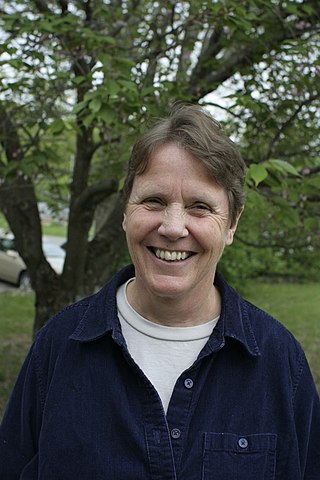
Soeng Hyang Soen Sa Nim is a Zen Master and the Guiding Teacher of the international Kwan Um School of Zen, and successor to the late Seung Sahn Soen Sa Nim.
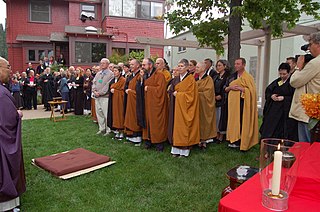
White Plum Asanga, sometimes termed White Plum Sangha, is a Zen school in the Hakuyu Taizan Maezumi lineage, created by Hakuyu Taizan Maezumi. It consists of Maezumi's Dharma heirs and subsequent successors and students. A diverse organization spread across the United States and with a small presence in Europe, the White Plum Asanga
[I]ncludes teachers who represent the spectrum of styles to be found to American Zen—socially engaged Buddhism, family practice, Zen and the arts, secularized Zen, and progressive traditionalism."

Dr. Soyu Matsuoka, along with Sokei-an and Nyogen Senzaki, was one of the early Zen teachers to make the United States his home.
Maurine Stuart, a.k.a. Ma Roshi or Mother Roshi, was a Canadian Rinzai Zen rōshi who was one of the first female Zen masters to teach in the United States. She became president and spiritual director of the Cambridge Buddhist Association in 1979.
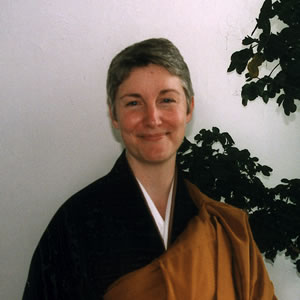
Bonnie Myotai Treace is a Zen teacher and priest, the founder of Hermitage Heart, and formerly the abbot of the Zen Center of New York City (ZCNYC). She teaches currently in Black Mountain and Asheville, North Carolina. Myotai Sensei is the first Dharma successor of John Daido Loori, Roshi, in the Mountains and Rivers Order (MRO), having received shiho, dharma transmission, from him in 1996. Serving and training for over two decades in the MRO, she was the establishing teacher and first abbess of the ZCNYC. At the Monastery she was the Vice Abbot, the first director of Dharma Communications, editor of Mountain Record, and coordinator of the affiliates of the MRO. Treace, ordained as a Zen monastic, now lives as a lay teacher, working primarily with her long-term students.

Village Zendo is a combined Soto and Rinzai Zen practice center in lower Manhattan. Originally located in the apartment of Enkyo Pat O'Hara, who founded the zendo in 1986, the Zen center took up the majority of space in O'Hara's apartment. Village Zendo is a practice center of the White Plum Asanga and Zen Peacemaker Circle, the former founded by O'Hara's teacher Taizan Maezumi and the latter by Bernard Glassman.
Michael Danan Henry is an American Roshi in the Harada-Yasutani lineage, a Zen sect derived from both the Rinzai and Sōtō traditions of Japanese Zen, practicing in the Diamond Sangha lineage of Robert Baker Aitken. The founding teacher of the Zen Center of Denver, Henry received Dharma transmission from Philip Kapleau Roshi in 1989 and was subsequently recognized as a Diamond Sangha teacher and master by Robert Baker Aitken. Danan Henry Roshi created and implemented the Monastery Without Walls training program; the Lotus in the Flame Lay Order; and the "Every Minute Zen" mindfulness practice as abbot and spiritual director of the Zen Center of Denver.
Dairyu Michael Wenger is a Sōtō Zen priest and current guiding teacher of Dragons Leap Meditation Center in San Francisco. Prior to establishing Dragons Leap in 2012, Wenger served as Dean of Buddhist Studies at the San Francisco Zen Center (SFZC) in San Francisco, California—where he has been a member since 1972. A Dharma heir of Sojun Mel Weitsman, Wenger is also a former president of the SFZC where he continues to serve on the Elders Council. He received his M.A. from The New School in New York, New York.

